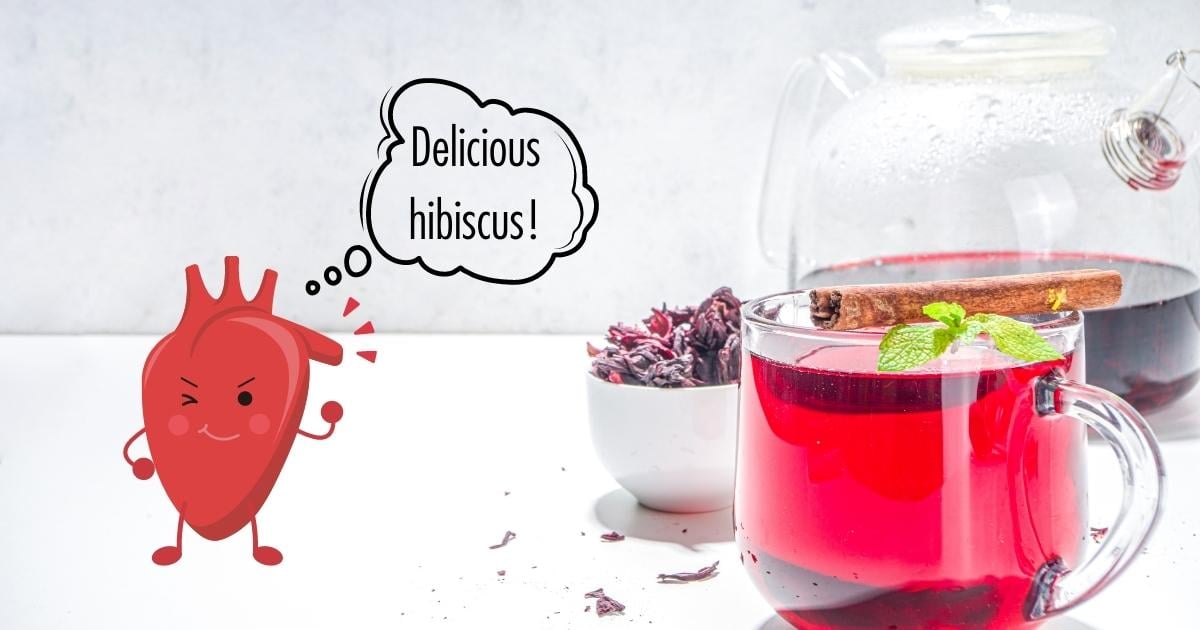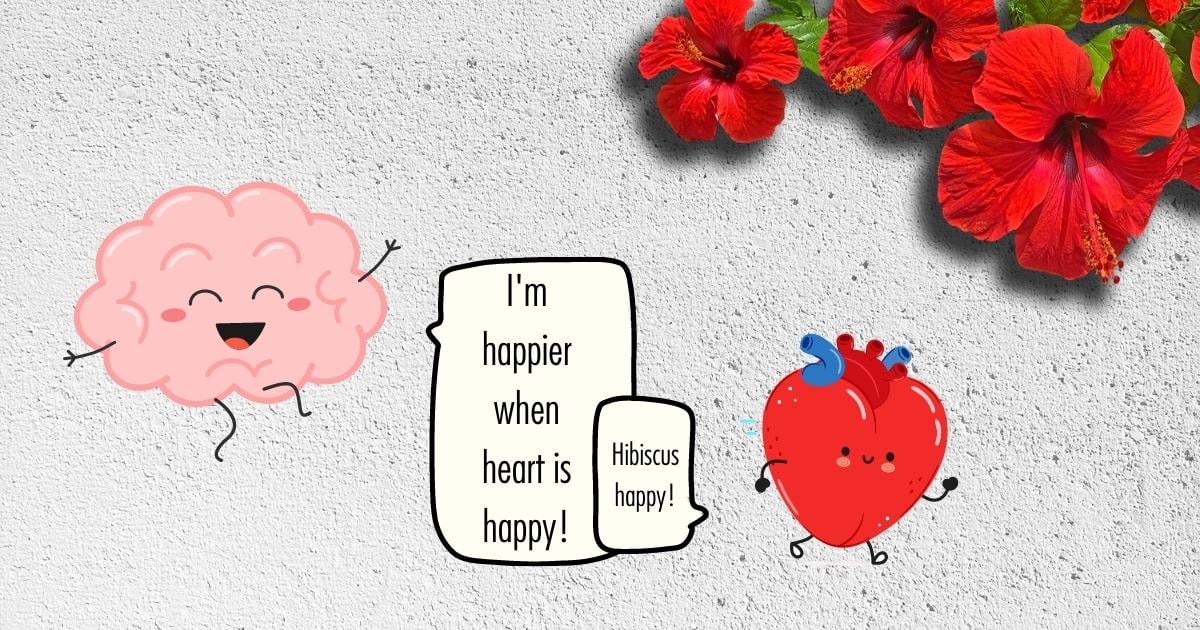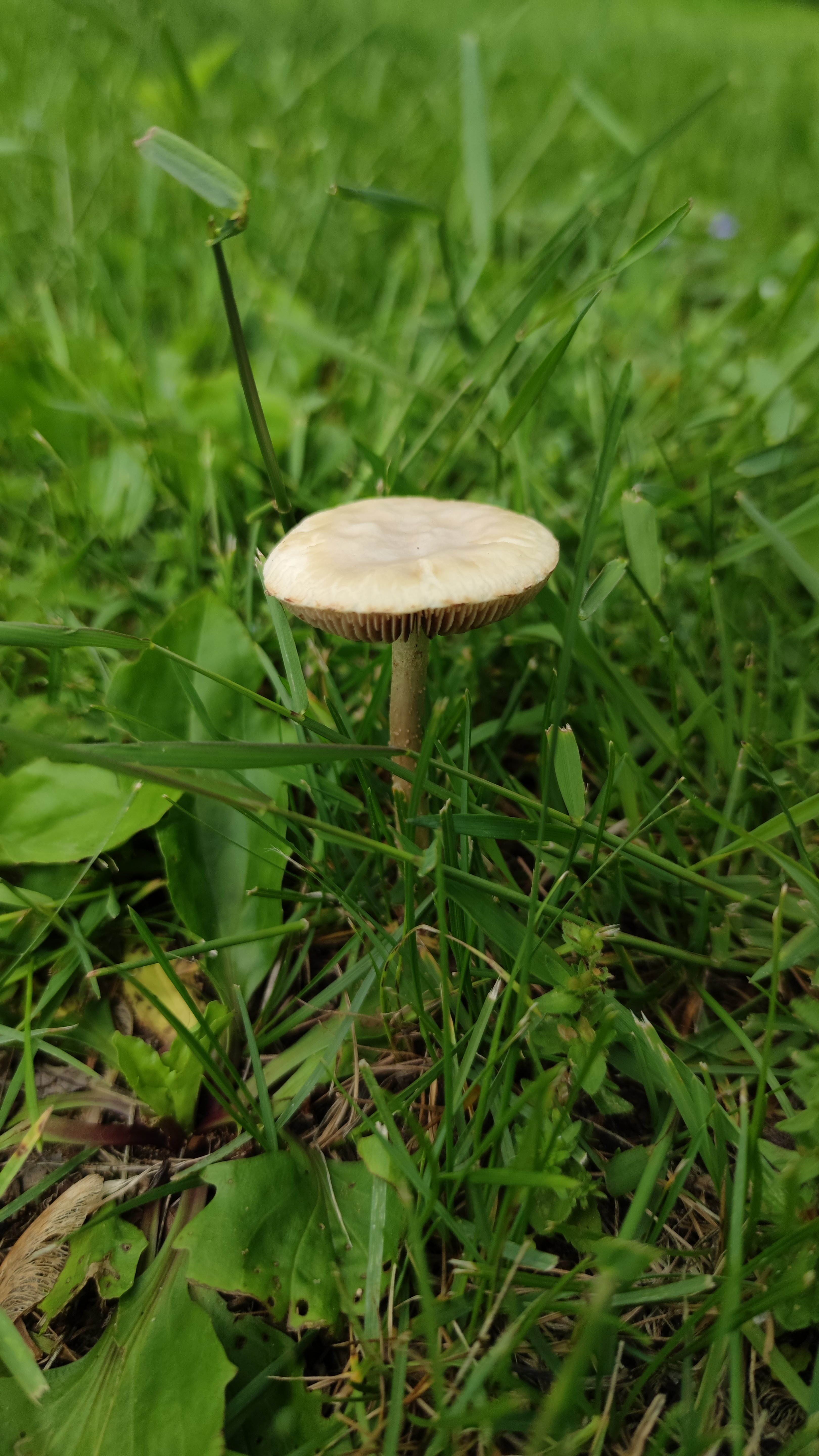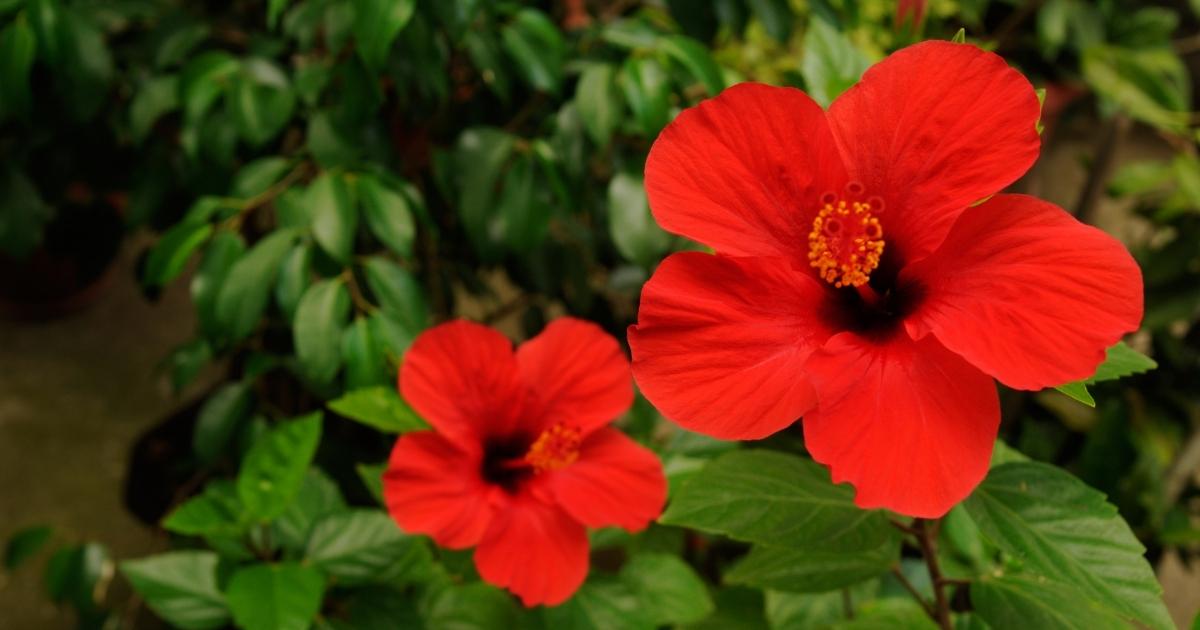Hibiscus, known as roselle, Jamaica, red sorrel, karkadeh, and sour tea, is enjoyed in more places than it has names.1,2 It’s most popular as a tea, but can be added to juice, bread, cookies, and more. Plus, it’s increasingly in health foods.
The flavor is as if raspberries and rosehips combined into a flower. However, the berry resemblance doesn’t end at the taste. It has some “berry” good benefits.
Acids and colors
Most of the health benefits in hibiscus come from the organic acids, fragrant (phenolic) acids, and flavonoids and anthocyanins (pigments) in the hibiscus flower.1 A deep, rich red color means rich nutrients.
Climate conditions, growth stage, and plant variety can all affect the amounts of acids in the plant. It may contain:1
- 13-24% hibiscus acid
- 12-20% citric acid
- 2-9% malic acid
- 8% tartaric acid
- .02-.05% ascorbic acid (Vitamin C)
- Trace amounts of other acids like the tropical hydroxycitric acid
The acids and rich color compounds in hibiscus share numerous health benefits, including being anti-inflammatory, anti-microbial, and antioxidant. Especially due to the specific chemical structures of some of the acids and colors, these three effects are the source of most of its health benefits.1,3
Cardiovascular health
In ancient medicine, plants were chosen to treat an organ if they looked like an organ of the body. Hibiscus tea is blood red, and in this case, the ancient method pays off.
The heart-healthy benefits of hibiscus are so high that hibiscus is considered an ACE inhibitor—part of a class of drugs that relaxes blood vessels, aiding high blood pressure and heart health. It may be as effective as some blood pressure medications, or even more effective, for people with stage 1 hypertension. The unique acid in hibiscus—hibiscus acid—is especially helpful with this, in addition to the strong general antioxidant effects of the flower.2,4
Even one gram, or half a typical tea bag, of hibiscus can affect blood pressure. Blood pressure may be reduced as much as 8%. Effects on blood pressure are strongest on those with the highest blood pressure.2 The worse health is, the better the effects.
Especially as an addition to a healthy diet, complications from high blood pressure and death from heart disease may decrease with hibiscus, in addition to reducing symptoms like palpitations. It even increases high-density lipoprotein, which is protective against heart disease.2,4,5

Diabetes
The effects of hibiscus on diabetes are almost as strong as its heart healthy effects. It may even be as effective as some drugs in treating type 2 diabetes. Hibiscus acid inhibits the degradation of starch and sugar into glucose and helps reduce glucose absorption, which helps reduce insulin resistance. Just .5 to 1 gram, or 1/4 to half a tea bag of hibiscus may even help reduce harmful lipids in the blood, which diabetes can contribute to.1,2
Cancer reduction
Hypertension, diabetes, high cholesterol, and more can contribute to cancer. Hibiscus works against all these health disorders, plus protecting genes, reducing DNA fragmentation, helping kill harmful cells, and specifically targeting areas of the body where cancers are most common, especially the breasts and prostate.1,6,7
Hibiscus contains plant estrogens including quercetin, daidzein, and ergosterol, which help target anticancer properties of hibiscus to parts of the body high in estrogen receptors like breasts, ovaries, and the cervix. A similar phenomenon occurs with the prostate, as hibiscus also contains an androgen-receptor targeting plant hormone.4,6
General cancers are also reduced with hibiscus, including leukemia. However, although antioxidants and anti-inflammatories are always good to reduce the spread and formation of cancer, even the special effects of the strong acids and colors in hibiscus cannot cure cancer alone.1,6
Temperature regulation
Plants are not often studied as aids to reduce the effects of heat on the body. However, one study performed showed that hibiscus can help reduce heat stress. Heat stress produces free radicals, making the body consume more of them to prevent damage. Hibiscus, rich in free radical busting antioxidants, was even more effective than plain vitamin C against heat stress.8 It’s no wonder that hibiscus is consumed most often in hot regions!
Dry mouth aid
Dry mouth is a common symptom caused by many medications and some particularly potent herbs. Malic acid, present in hibiscus, can help reduce this by increasing saliva production.1 Malic acid is very strong, so consuming it in its natural form like in hibiscus tea is best.
Digestive health
Increased body health is always good for digestive health, but hibiscus goes above and beyond. Hibiscus lowers the expression of pro-inflammatory genes like TNF-a, including a gene identified as contributing to IBS. Due to its vitamin C content, it may even help the body absorb minerals better. Plus, it helps move contents through the intestines, keeping digestion running smoothly.1,4
Kidney health
Hibiscus is best in moderation. Like garcinia cambogia, hibiscus may contain hydroxycitric acid that forms in tropical plants. At high doses, this acid can harm kidneys. However, in small to moderate amounts, it may help prevent kidney stones and stimulate healthy filtration, reducing sodium and chloride with its diuretic effects.1,2
Mental health
The effects of hibiscus on mental health are not widely studied. But according to one study in which participants were given hibiscus juice, they should be.
Heart palpitations and tension are widely associated with anxiety. The known cardiovascular effects of hibiscus decreased these symptoms in study participants, even though their coffee drinking increased during the study. Plus, feelings and thoughts of anxiety in general decreased.
In addition, lower antioxidant intake is associated with depression. Antioxidant intake can help the gut produce serotonin and other neurotransmitters effectively, plus reducing inflammation that is usually high in depression.5 A strong antioxidant, hibiscus may be a healing plant the body needs to support the mind.

Brain health
Neurodegenerative diseases cause oxidative stress, increasing consumption of precious resources like vitamin C. They may also help prevent them, as the brain needs antioxidants to stay healthy and ward off cancers and disease. The ones in hibiscus may even help reduce stress-caused inflammation in the brain, helping your brain stay resilient in tough times.1,9
Drug interactions
While hibiscus is very safe to consume, its strong medicinal properties may interact with some medications, especially heart and blood pressure medications. Some other drugs it is known to interact with are:4
- Hydrochlorothiazide, a diuretic
- Chloroquine, a malaria drug
- Ciprofloxacin, an antibiotic
- Acetaminophen, also known as paracetamol, a pain reducer
Herbs, even as tea, are sometimes strong enough to be considered a supplement. If your doctor asks what supplements you take, it may be most wise to mention if you drink hibiscus tea or use it as an ingredient.
Looking ahead
A large amount of novel research has been done using hibiscus since 2010. Researchers suspect that it may be helpful against some of the top chronic diseases, from diabetes to cancer to high blood pressure. It may even help you stay cool in the warming summers. If hibiscus is right for you, here’s a pro tip: it tastes delicious with spinach juice.
References:
- Izquierdo-Vega, J., Arteaga-Badillo, D., Sánchez-Gutiérrez, M., Morales-González, J., Vargas-Mendoza, N., Gómez-Aldapa, C., Castro-Rosas, J., Delgado-Olivares, L., Madrigal-Bujaidar, E., & Madrigal-Santillán, E. (2020). Organic Acids from Roselle (Hibiscus sabdariffa L.)—A Brief Review of Its Pharmacological Effects. Biomedicines, 8(5), 100. https://doi.org/10.3390/biomedicines8050100
- Ellis, L. R., Zulfiqar, S., Holmes, M., Marshall, L., Dye, L., & Boesch, C. (2022). A systematic review and meta-analysis of the effects of Hibiscus sabdariffa on blood pressure and cardiometabolic markers. Nutrition reviews, 80(6), 1723-1737.
- Ma, Y., Ding, S., Fei, Y., Liu, G., Jang, H., & Fang, J. (2019). Antimicrobial activity of anthocyanins and catechins against foodborne pathogens escherichia coli and salmonella. Food Control, 106, 106712. https://doi.org/10.1016/j.foodcont.2019.106712
- Umeoguaju, F. U., Ephraim-Emmanuel, B. C., Uba, J. O., Bekibele, G. E., Chigozie, N., & Orisakwe, O. E. (2021). Immunomodulatory and mechanistic considerations of Hibiscus sabdariffa (HS) in dysfunctional immune responses: A systematic review. Frontiers in Immunology, 12, 550670.
- Almoraie, N. M., Aljefreea, N. M., Althaiban, M. A., Hanbazaza, M. A., Wazzan, H. A., & Shatwan, I. M. (2022). The Effect of Roselle (Hibiscus) Juice on Mood Improvement in Healthy Adults. Functional Foods in Health and Disease, 12(10), 601-613.
- Laskar, Y. B., & Mazumder, P. B. (2020). Insight into the molecular evidence supporting the remarkable chemotherapeutic potential of Hibiscus sabdariffa L. Biomedicine & Pharmacotherapy, 127, 110153.
- Common cancer types. National Cancer Institute. (n.d.). https://www.cancer.gov/types/common-cancers
- Adenkola, A. Y., Carew, N. S., Ojabo, L. D., & Angani, M. T. (2016). Comparative Studies Ascorbic Acid and Hibiscus sabdariffa Calyces against Heat-Stress Inclusion in Broiler Chicken. Alexandria Journal for Veterinary Sciences, 51(1).
- Shalgum, A., Govindarajulu, M., Majrashi, M., Ramesh, S., Collier, W. E., Griffin, G., ... & Dhanasekaran, M. (2019). Neuroprotective effects of Hibiscus Sabdariffa against hydrogen peroxide-induced toxicity. Journal of Herbal Medicine, 17, 100253.
Choosing a healthy plant-based and vegan diet is most beneficial when it comes to:
-
Higher levels of energy;
-
Improved sleep;
-
Aids in energy and overall happiness;
-
Provides a sense of comfort and relief;
-
Could prevent major diseases such as obesity and diabetes;
-
Accomplish weight-loss and management; and
-
Improves mental and cognitive functioning.
There are really no excuses not to try healthier habits in your everyday life. If you are a man or woman looking for specific benefits of adopting healthier habits or just want to know about the general healing properties of herbs. Please remember to comment or post any health questions, or contact us directly!
Also feel free to share any of your favorite recipes to make and share it with the Assuaged community on our ➡️ Share A Recipe ⬅️ page!
















